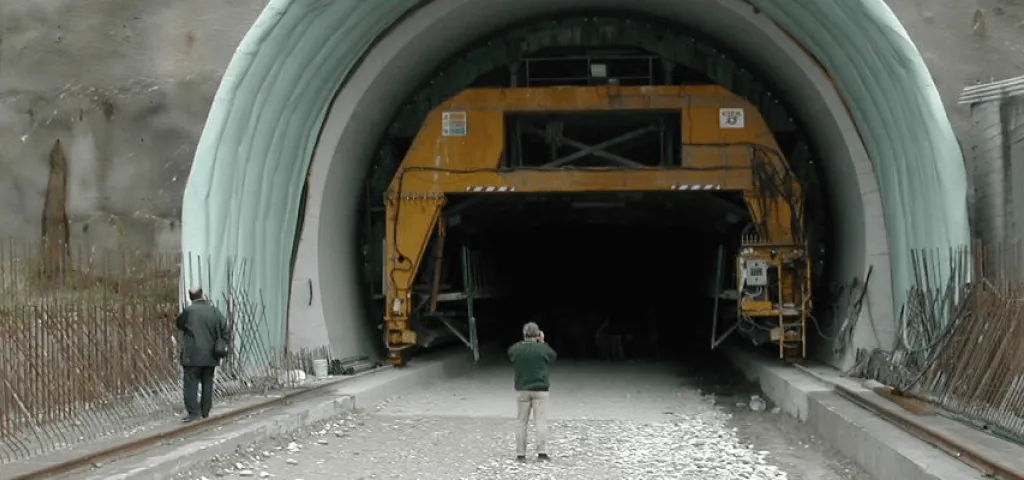
History - Location of the Department
The Department of Civil Engineering at the University of the Peloponnese is located in Patras and has a long history dating back to 1970. Since 2013, it has been operating as Department of Civil Engineering (Technological Education) and since the academic year 2019-2020 as Department of Civil Engineering of the University of the Peloponnese.
Undergraduate and Postgraduate Studies
Undergraduate Curriculum
Graduates of the Department of Civil Engineering of the University of the Peloponnese will have the ability to apply adequately the knowledge of Civil Engineering in general, and in particular:
▶ the ability to use the state-of-the-art engineering tools required for the application of engineering in the study of applications and solving civil engineering problems
▶ the ability to supervise the practical application of studies
▶ the cooperation with scientists from other specialisations in the common dealing with application problems
▶ the opportunity for research work and taking initiatives on the subject
▶ the teamwork and cooperation
▶ the respect towards society and environment
The Department’s fields of study include:
▶ Study elaboration, organising and supervising of building projects and rehabilitation projects on existing buildings
▶ Study elaboration, organising and supervising of other civil engineering projects (bridges, dams, tunnels, etc.)
▶ Study elaboration, organising and supervising of water engineering projects including water supply, drainage, coastal, port and fl ood-prevention projects
▶ Study elaboration, organising and supervising of road infrastructure, road and pavement design, transport projects
▶ Study elaboration on the environmental impacts of engineering projects
▶ Geotechnical study elaboration including trenches, embankments, slopes, supports
The Undergraduate Curriculum lasts 5 years and was created according to the Hellenic Quality Assurance and Accreditation Agency standards. Every course with a duration of one semester accounts for a certain number of ECTS-credits (European Credit Transfer and Accumulation System). The ECTS-credits for each course are defi ned according to the eff ort required by the students to achieve the expected learning outcomes. Every semester accounts for 30 ECTS-credits. In order to complete successfully the Curriculum, students have to accumulate 300 ECTS-credits in total, which include the thesis prepared during the last two semesters.
Postgraduate Curriculum
As from the academic year 2021-2022, the Department will off er a Postgraduate Curriculum with the title: “Protection of Constructions from Natural Disasters”.
The subject of the Postgraduate Curriculum is the training of engineers in the private or public sector, so that they can foresee the possible impacts of a particular natural phenomenon and take any necessary measures to face them, either at the level of a study before the project construction or aſter the evaluation of the construction’s remaining strength aſt er its exposure to the phenomenon.
The study fields of the Postgraduate Curriculum off er specialised knowledge and include:
▶ Construction analysis with modern methods
▶ Design of structures based on the existing antiseismic regulation and contemporary non-conventional methods
▶ Natural Hazards Assessment
▶ Structural Vulnerability Assessment against Extreme Natural Hazards
▶ Vulnerability Assessment of Utility Networks and Infrastructure Projects in Relation to Soil
▶ Flood Risk / Area Vulnerability Assessment and Suggestions for Flood Reduction Practices
▶ Wildfi re-Adapted Construction Design
▶ Project Design for Coastal Protection from Erosion and Natural Disasters
The Department can officially offer postgraduate studies at the level of a doctoral degree
Carrer Prospects
The Department is moving decisively towards the recognition of professional rights. Through the skills received and the wide range of the study fi eld, the Department’s graduates can work in many fi elds of their profession as civil engineers, such as conducting studies and supervisions in structural, water engineering, geotechnical engineering and public transport projects. They can also enrol in the Postgraduate Curriculum of the Department or any other Department of Civil Engineering.
Research
The research activity of the Department covers a variety of subjects of interest related to the field of Civil Engineering. Our department has plenty of laboratories with state-of-the-art equipment.
In parallel, the Department owns state-of-the-art soſt ware for Finite Elements Analysis in Construction and has some professional programmes of issue analysis in Civil Engineering.
The research work of the Department’s Teaching and Research Staff members (DEP) includes basic and applied research in the following fields:
▶ Earthquake-resistant Design
▶ Structural Control
▶ Protection of Cultural Heritage from Natural Disasters
▶ Dynamic Analysis of Buildings
▶ Earthquake Mechanics
▶ Calculation Methods for Construction Analysis
▶ Boundary Element Methods
▶ Finite Element Methods
▶ Construction Computer Analysis
▶ Soil-Structure Interaction
▶ Oscillation Control
▶ Wave Propagation
▶ Elastic Dynamics
▶ Elastoplastics
▶ Computer Programming and Computational Applications in Civil Engineering
▶ Modelling of Construction Information / Building Information Modelling (BIM)
▶ Hydrodynamics in Ocean Environment
▶ Turbulent Flows in Open Channels
▶ Free Surface Flows
▶ Simulation of Waste Diff usion and Transport in Water Environment
▶ Coastal Hydrodynamic Movement
▶ Lagoon Hydrodynamics
▶ Water Renewal in Closed, Semi-closed Water Bodies
▶ Environmental Hydraulics
▶ River Hydraulics
Access
38.218956736968, 21.74658237045
Department of Civil Engineering

